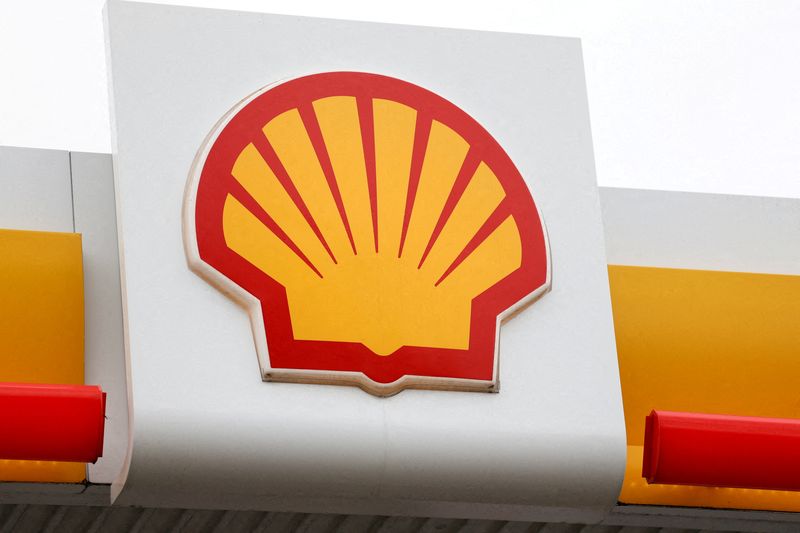
Shell and Equinor form UK North Sea oil and gas joint venture
By Louise Rasmussen, Ron Bousso and Nerijus Adomaitis
COPENHAGEN/LONDON/OSLO (Reuters) -Shell and Norway’s Equinor will merge their British North Sea assets to form what is set to be the ageing basin’s largest oil and gas company, the pair said on Thursday.
The 50-50 joint venture, to be based in Aberdeen, Scotland, will pool the companies’ resources and spending, and cut costs to boost the profitability of the assets.
Equinor will also bring large tax savings while Shell (LON:SHEL)’s larger oil and gas production offers the venture higher cashflow as it develops new fields, including the giant Rosebank oil project.
“The UK basin is maturing and production naturally declining, the combination of portfolios and expertise will allow continued economic recovery of this vital UK resource,” Equinor CEO Anders Opedal said in a LinkedIn post.
Combined output is expected to rise to between 200,000-220,000 barrels of oil equivalent per day (boed) in the next five years – from over 140,000 in 2025 – as projects come onstream, Philippe Mathieu, Equinor’s head of international oil and gas production, told Reuters.
The deal is expected to be completed by the end of 2025.
Harbour Energy is the basin’s top producer today with an output of 149,000 boed at the end of June.
Shell was a North Sea pioneer, producing gas in the Leman field in 1968, three years before it discovered the Brent oilfield, which became one of the basin’s most important fields and gave its name to the global oil benchmark.
The new entity would be the British North Sea’s biggest independent producer, but there is no intention to conduct an initial public offering, Shell Upstream Director Zoe Yujnovich told reporters, adding that the JV will raise its own debt.
STEADY EXIT
Oil companies have been steadily exiting Britain’s North Sea in recent decades with production declining from a peak of 4.4 million boed at the start of the millennium to around 1.3 million boed today.
The British government’s imposition of a windfall tax on North Sea producers following a surge in energy costs in 2022 has increased pressure on them to reduce investment and exit the basin.
Equinor, which produces some 38,000 boed per day in Britain, has an 80% stake in the Rosebank oilfield, one of the last known major oil reservoirs in Britain whose development is expected to cost $3.8 billion.
Shell, with UK output of more than 100,000 boed, is developing the Jackdaw gas field.
Other oil groups have formed North Sea ventures in recent years, including Eni and Ithaca Energy (LON:ITH) in Britain this year and the 2016 creation of Aker BP (NYSE:BP) in Norway.
RBC Capital Markets said in a note that Thursday’s deal effectively reduces Equinor’s capital expenditure by $1.2 billion over 2025-2027, due to the way the new entity will be accounted for, while Shell would see a smaller capex reduction.
Equinor also brings around 6 billion pounds ($7.6 billion) of deferred tax losses to the JV, which it can offset against future spending, RBC said.
“There’s a very strong industrial logic for doing this. We are adjusting to the industrial reality of the mature UK shelf,” Equinor’s Mathieu said, confirming that the JV would benefit from tax losses.
The new company will include Equinor’s stakes in the Mariner, Rosebank and Buzzard fields, and Shell’s holdings in Shearwater, Penguins, Gannet, Nelson, Pierce, Jackdaw, Victory, Clair and Schiehallion, the Norwegian group said.
A range of exploration licences will also be part of the transaction.
Equinor will retain ownership of cross-border assets between Norway and Britain, as well as its offshore wind, hydrogen, carbon capture and storage, power generation, battery storage and gas storage assets.
Shell will keep its interests in the Fife NGL plant, St Fergus Gas Terminal and floating wind projects under development, MarramWind and CampionWind.
($1 = 0.7863 pounds)

